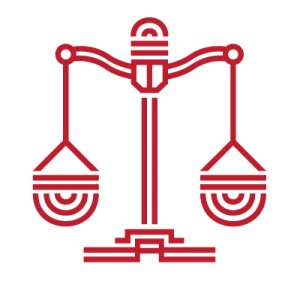Best Divorce & Separation Lawyers in Midrand
Share your needs with us, get contacted by law firms.
Free. Takes 2 min.
Free Guide to Hiring a Family Lawyer
List of the best lawyers in Midrand, South Africa
South Africa Divorce & Separation Legal Questions answered by Lawyers
Browse our 1 legal question about Divorce & Separation in South Africa and read the lawyer answers, or ask your own questions for free.
- What can I do to get my divorce settlement
- I got divorced last November, but I haven't received my settlement. It's a story from one to another, so what must I do to get my settlement
-
Lawyer answer by MAH&CO.
Hello, I'm sorry to hear about your situation. If your divorce was finalized last November and you still haven’t received your settlement, it’s important to take legal steps without further delay. In most cases, the court's judgment or settlement agreement...
Read full answer
About Divorce & Separation Law in Midrand, South Africa
Divorce and separation law in Midrand, South Africa, is governed by national legislation but has specific local practices and resources. Divorce is the legal process of ending a marriage, while separation refers to spouses living apart, with or without a formal agreement. Midrand residents go through the same courts and legal procedures as those in the rest of South Africa, with cases handled by either the High Court or the regional divisions of the Magistrate Court. These laws address how property is divided, child custody and maintenance, and spousal support, aiming to ensure fair outcomes for both parties and the wellbeing of any children involved.
Why You May Need a Lawyer
Divorce and separation can be emotionally taxing and legally complex. A lawyer is often needed to guide you through the legal process, especially if any of the following situations apply:
- You and your spouse cannot agree on the terms of the divorce, such as division of property or child custody.
- There are significant assets, debts, or jointly owned property involved.
- One party wants to claim maintenance (spousal or child support).
- There are disputes over the living arrangements and care of children.
- You or your spouse are concerned about safety and require a protection order.
- You need help interpreting a marriage contract, such as an antenuptial agreement.
- Language barriers or lack of legal knowledge make it difficult to represent yourself.
Even in seemingly straightforward cases, a lawyer’s expertise can help safeguard your interests and ensure the process runs smoothly.
Local Laws Overview
In Midrand and throughout South Africa, divorce proceedings are governed primarily by the Divorce Act 70 of 1979. The law recognises two main grounds for divorce: the irretrievable breakdown of the marriage or mental illness/continuous unconsciousness of one spouse. There are two main types of divorce:
- Contested Divorce - Disputes exist regarding assets, children, or maintenance.
- Uncontested Divorce - Both parties agree on all terms, making the process faster and cheaper.
Key aspects of local law relevant to Midrand include:
- Divorces can be dealt with by the Johannesburg High Court or the regional Magistrate Court in Midrand.
- South Africa follows the principle of the best interests of the child for custody arrangements.
- Property is divided according to your marriage contract: in community of property, out of community without accrual, or out of community with accrual.
- Maintenance for children or a former spouse is determined based on each party’s means and needs.
- Mediation can be recommended to help resolve disputes before court intervention.
Frequently Asked Questions
How long does it take to get divorced in Midrand?
An uncontested divorce may take only a few months, while a contested divorce can take years, depending on the issues in dispute and court schedules.
Which court handles divorce cases in Midrand?
Divorces are handled by the Johannesburg High Court or the Midrand regional Magistrate Court, depending on the details of the case.
What are the grounds for divorce in South Africa?
The main ground is the irretrievable breakdown of the marriage, but mental illness or continuous unconsciousness is also recognised.
Do I need to be separated before I can file for divorce?
No formal period of separation is required. Evidence of an irretrievable breakdown is sufficient.
How is custody of children decided?
Custody is awarded based on the best interests of the child, considering their wellbeing, safety, and relationships with each parent.
What happens to property and assets after divorce?
Property division depends on the type of marriage contract. In community of property means all assets are shared and divided equally; out of community arrangements depend on specific contractual terms.
Can I get a divorce without a lawyer in Midrand?
While possible, self-representation might only be suitable for straightforward uncontested divorces.
Is mediation available for resolving disputes?
Yes, mediation is often recommended before going to court, especially for matters involving children or complex asset division.
How is child maintenance determined?
Child maintenance considers the child’s needs and both parents’ financial circumstances. The Maintenance Court can make or amend orders.
What should I do if I feel threatened during divorce proceedings?
You may apply for a protection order under the Domestic Violence Act to ensure your safety during and after the divorce process.
Additional Resources
If you need support or information, you may contact the following resources in Midrand and Johannesburg:
- Midrand Magistrate Court for legal proceedings and information.
- Johannesburg High Court for complex divorce matters.
- Family Advocate’s Office for disputes involving children.
- Legal Aid South Africa for assistance if you cannot afford a private lawyer.
- The Department of Justice and Constitutional Development for guides and legal forms.
- South African Police Service for reporting domestic violence and obtaining protection orders.
- Non governmental organizations such as FAMSA or Lawyers for Human Rights for counseling and legal support.
Next Steps
If you are considering or facing divorce or separation in Midrand, South Africa, follow these steps for the best outcome:
- Gather all relevant documents, including your marriage certificate, identification, and details of shared assets and children.
- Consider discussing your situation with your spouse if it is safe and possible, especially if you may pursue an uncontested divorce.
- Contact a qualified family law attorney in Midrand for a consultation. They can advise you on your rights, expected outcomes, and how local procedures work.
- If you cannot afford private legal services, approach Legal Aid South Africa or other support organizations.
- If children are involved, prioritize their welfare. You may need to meet with the Family Advocate to discuss custody and parental responsibilities.
- Explore alternative dispute resolution, such as mediation, to potentially save time and costs.
- Maintain accurate records of all communication and financial transactions throughout the process.
Starting the process with good advice and support ensures you protect your interests and those of your family during this challenging time.
Lawzana helps you find the best lawyers and law firms in Midrand through a curated and pre-screened list of qualified legal professionals. Our platform offers rankings and detailed profiles of attorneys and law firms, allowing you to compare based on practice areas, including Divorce & Separation, experience, and client feedback.
Each profile includes a description of the firm's areas of practice, client reviews, team members and partners, year of establishment, spoken languages, office locations, contact information, social media presence, and any published articles or resources. Most firms on our platform speak English and are experienced in both local and international legal matters.
Get a quote from top-rated law firms in Midrand, South Africa — quickly, securely, and without unnecessary hassle.
Disclaimer:
The information provided on this page is for general informational purposes only and does not constitute legal advice. While we strive to ensure the accuracy and relevance of the content, legal information may change over time, and interpretations of the law can vary. You should always consult with a qualified legal professional for advice specific to your situation.
We disclaim all liability for actions taken or not taken based on the content of this page. If you believe any information is incorrect or outdated, please contact us, and we will review and update it where appropriate.











